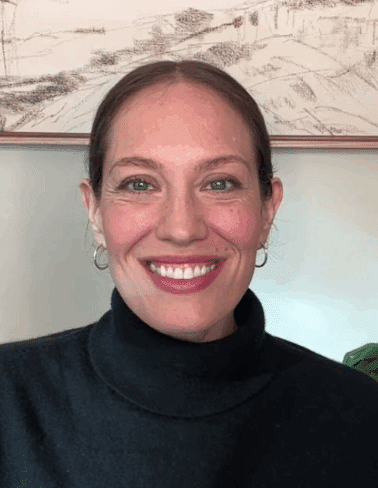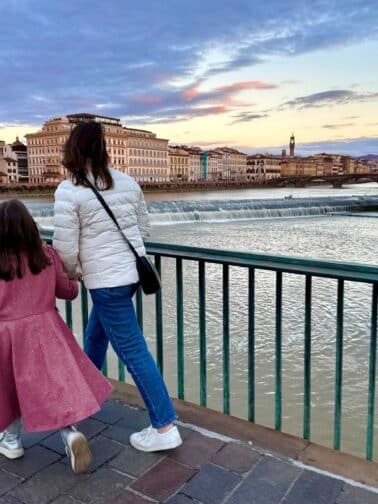When it came down to actually sitting here and writing this letter to you about how I—as an ambitious, driven woman—have money trauma, I literally didn’t know where to start.
I feel like the content I have around this could fill a book. And in fact, it’ll probably be part of my memoir someday, because the examples and the extremity of this relationship are so vast, so complicated, so layered that a single letter couldn’t possibly hold it all.
But I want to try. Because if you’re reading this with your own complex money story churning in your chest, you deserve to know you’re not alone in the messiness of it all.
The Before and After
Broad strokes, without all the details I’ll save for that memoir:
I was set to grow up financially secure, possibly upper middle class, until about age 6. Then my biological father—who I was disowned by—completely blew up our lives and left my mother with four daughters under the age of six.
Just like that, security became survival.
From there, my life became one of poverty and extreme financial insecurity. It slowly got better over time, but never a lot. Never owning our own home. Never not worrying about the next bill.
Here’s what made it even more complicated: I grew up on Mount Desert Island off the coast of Maine, where the Rockefellers, the Vanderbilts, the Carnegies all built their “summer cottages” at the turn of the century. (Spoiler: these weren’t cottages. They were mansions.)
On top of this, every summer, new money would flow up from other well-to-do places, flooding our small island with Land Rovers and families with yacht club, swim club, and tennis club memberships and kids my age who went to Phillips Exeter and had trust funds bigger than our entire town’s annual budget.
I grew up in these highly bifurcated worlds in the same small village. There were the locals and there were the summer people. Summer people had wealth. The locals usually worked for them—cleaning their houses, maintaining their gardens, serving their lobster dinners, babysitting their kids.
We were the locals.

The Mind-Bending Reality of Performative Wealth
When my father left, my mother went back to work, doing whatever it took—whatever it took—to feed her four daughters. The slow progression to stability was hard-won, but we never achieved real security. Never owned anything.
My estranged biological father, on the other hand? He maintained a lifestyle with art galleries in Manhattan and Palm Beach. Drove Rolls Royces. Sold ludicrously expensive pieces of art.]
And yet never contributed to our health insurance. Never paid child support.
This man would eventually go to jail for his crimes—the details of which I’ll save for another time—but the psychological impact of watching someone perform wealth while abandoning their actual responsibilities? That stays with you.
My relationship to money, to put it lightly, has been a tremendous source of trauma and growth. Early on, I developed both magical thinking when it came to money (“Maybe it will just appear somehow”) AND complete catastrophic thinking (“We’re always one step from ruin so I must work myself to the bone”).
When Poverty Becomes Visceral
By the time I got to Brown—on a full ride because we were so poor—I had moments of such profound financial insecurity that they’re branded into my body’s memory.
Like the time I literally didn’t have enough money to transfer between airports to catch a flight home. I was at the wrong airport and had to somehow make my way to the other one with nothing (I didn’t have a credit card back then). The panic of that moment—standing there knowing I had no one to call, no safety net to catch me—lived in my nervous system for a long time.
When I got kicked out of the house after Peace Corps (another story for another time), I was 100% on my own. No financial safety net. Nothing. No family umbrella to catch me if I fell. That lived in my nervous system for an even longer time.
So much of my workaholism—at least in the early days—came not just from personal mission (though I love my career deeply), but from also from total financial terror. The kind where you work yourself to the bone because you know, viscerally, what it’s like to have nothing and no one.
Building from Nothing, Together
My husband also grew up with relational trauma and was very poor. He didn’t attend college, which limited his income potential. But together—together—we built something from nothing. Two traumatized people with no safety nets, figuring it out bit by bit.
In 2011, I signed us up for Dave Ramsey’s Financial Peace University. I know, I know—Dave Ramsey. But when you’re drowning, you’ll grab any life raft. And that did become the start of my healing journey around money.
And then, in 2012, I discovered the budgeting software YNAB. And instead of avoiding those catastrophically high student loans which were coming due now that I was out of graduate school—all $150,000 worth of them—I started tracking them. Every penny. Every payment. For the first time, I looked the monster in the eye instead of pretending it wasn’t there.
For the last 13 years, I’ve been on what I call a financial sobriety journey. A financial realism journey. This meant:
- Processing money trauma with my EMDR therapist
- Working through it with my long-term relational therapist Carol (14 years and counting)
- Building actual skills to manage money soberly, grounded in reality
- Developing enough self-worth to start charging higher rates
- Launching a company
- Eventually selling that company
The two things in tandem—trauma healing AND skill building—took my husband and me from paycheck-to-paycheck terror with $150,000 in debt to a quite financially secure place now.
I say this not to brag, not to impress, but to impress upon you how damn long this journey has been.





